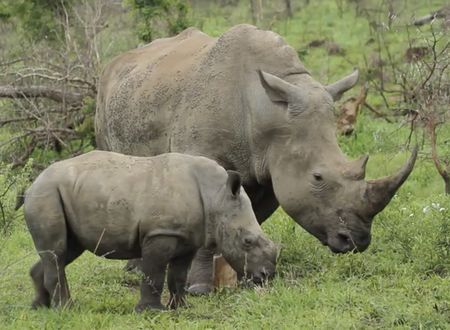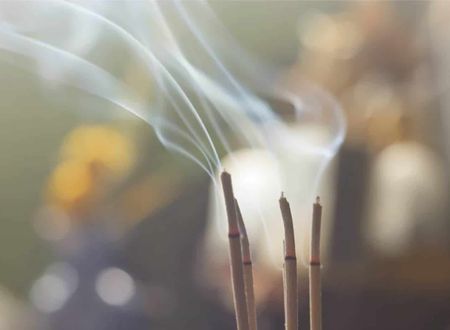Prologue – The scripture Vivekachudamani is a Prakarana Grantha – focussed on one topic, simple, systematic, focused. Vivekchudamani means
Vivek –Discernment/Discriminate, Chuda = Crest/Crown, Mani = Jewel, or Crown jewel of Discernment.
The whole text shows how the Viveka (the practice of Discernment) is a Crown Jewel, and starting point for our journey. We are discerning between what is true and untrue, what is permanent and temporary, and choosing truth/permanent.
Earlier articles in the series are – Human life – Rarest of Rare, Qualifications for a Seeker and Guru, Pre-requisites & Steps for learning Scriptures.
If we have the belief that man is a body and has a soul, and lays all the stress on the body. Then, we chase the body and sense pleasures, to get fulfilled, only to find that sense pleasures can never make us fulfilled. On the other hand, when we understand that God/reaching liberation is the goal of life, and that sense of enjoyment is something that we are passing through to eventually grow our Viveka, we stop chasing the senses.
Do you feel the bondage of human life? If yes, only then has our journey started.
Ramakrishna Paramhansa shared the below story and shared that there 4 types of people –– (a) Those who are in bondage (b) Mumukshu/Seekers after liberation (c) Mukta/Liberated, (d) Nitya Mukta/Ever-free. Among the ever free we may count sages like Narada. They live in the worlds for the good of others, to teach men spiritual truth.
“Suppose a net has been cast into a lake to catch fish. Some fish are so clever that they are never caught in the net. They are like the ever-free. But most of the fish are entangled in the net. Some of them try to free themselves from it, and they are like those who seek liberation. But not all the fish that struggle succeed; A very few do jump out of the net, making a big splash in the water.
Then the fishermen shout, ‘Look! There goes a big one!’ But most of the fish caught in the net cannot escape, nor do they make any effort to get out. On the contrary, they burrow into the mud with the net in their mouths and lie there quietly, thinking, ‘We need not fear anymore; we are quite safe here.’ But the poor things do not know that the fishermen will drag them out with the net. These are like the men bound to the world.”
Human birth is meant for spiritual life, and pursuing anything else is a misuse of human birth. Developing Sadhana Chatushtaya (fourfold discipline) is a way to enhance being human. Ignorance of the presence of Ishvara in the heart creates a vacuum. We try to fill the vacuum with worldly pursuits but that is not possible. Knowledge of Isvara is the only way to fill the vacuum. A seeker understands that worldly things will not fill the vacuum, but he doesn’t know the way to fill it.
He approaches a Guru with this desperate need and asks with humility, O Master, I am putting to thee these questions, and I shall be gratified to hear from you the answers (v48)
- What is this bondage? [को नाम बन्धः]
- From where has it come? [कथमेष आगतः]
- How is it continuing? [कथं प्रतिष्ठास्य]
- How to weaken this bondage?[ कथं विमोक्षः]
- What is Anatama? [कोऽसावनात्मा]
- What is Para-atama? [परमः क आत्मा]
- How to discriminate between Atma and Anatama? [तयोर्विवेकः कथमेतदुच्यताम्] (v49)
When the Guru hears the questions, he says –
धन्योऽसि कृतकृत्योऽसि पावितं ते कुलं त्वया।
यदविद्याबन्धमुक्त्या ब्रह्मीभवितुमिच्छसि।।50।।
You are indeed blessed and one who is spiritually wealthy (dhanya) ! You wish to attain Brahman hood and to get free from the bondage of ignorance. You are doing what you are supposed to do (i.e. work on achieving thy life’s goal), and thus through this lineage of your family are sanctified.
Then he goes on to answer Question 4 first. [How to weaken this bondage?]
The reason he answers that first is that, when you are injured with an arrow, what is crucial is to first take it out, then ask, from where it came, what it is made of, etc.
Guru says
मोक्षस्य हेतुः प्रथमो निगद्यते वैराग्यमत्यन्तमनित्यवस्तुषु।
ततः शमश्चापि दमस्तितिक्षा न्यासः प्रसक्ताखिलकर्मणां भृशम् ||69||
The first step to liberation is the extreme aversion to all perishable things, which is the practice of Viveka.
After that practicing, (shama) calmness, (dama) self-control, (Titiksha) forbearance, and (Nyasa) relinquishing the fruits of action, or working in a detached manner. This way you can reach liberartion.
In other words, he highlights the practices of the four-fold path(Sadhana Chatushtaya), which is the way to achieve liberation.
These four-fold virtues are interconnected.
1. Viveka/Discernment leads to Vairagya/Detachment.
2.Vairagya/Detachment leads to Shama/Calmness of the mind.
3. Shama/Calmness of mind leads to Dama / Self Control of the mind.
So if we start the practice with Viveka, we will get there. Mindfully discern what is real/unreal, truth/untruth, temporary/permanent, and pursue only the truth. [Viveka]Then you develop detachment, which leads to calmness and self-control of the mind. In this state, relinquishing the fruits of your action, you work and reach liberation.
Then, the Guru says,
ततः श्रुतिस्तन्मननं सतत्त्व ध्यानं चिरं नित्यनिरन्तरं मुनेः।
ततोऽविकल्पं परमेत्य विद्वा निहैव निर्वाणसुखं समृच्छति।।70||
If a mindful & qualified seeker/sadhak (muni) listening(shravanam) to his Guru’s statements on the nature of Atma (truth), does – contemplation (mananam) and meditation (dhyana) of what Guru shares does an uninterrupted dhyana/remembrance. Then in this way he will reach the Nirvikalpa Parabrahma/Brahman/liberation and achieve the happiness of nirvana.
Reflection on what has been said, and long continuous meditation on the truth for the wise one, leads to Nirvikalapa Samadhi.
In the above, we understand the importance of the practice of Viveka/Discernment – It means the practice of discriminating between the Self/Truth/Permanent & Non-Self/Untruth/Temporary.
We are clinging to our body & bodily sense pleasures and trying to fill the vacuum by seeking more sense pleasures. But the body is temporary and the soul is permanent, and we are clinging to the body & senses, which are temporary. This is Aviveka (opposite of Viveka).
So unless we go inward and reach Brahman/Atman/Soul/Universal soul, this suffering will remain.
Here the intent is not to neglect the body and put it through hardship. This human body is a precious resource, and we should take full care of it, recognizing that in this only we can do spiritual practices to reach Brahman/Liberation.
One can make a list or set of principles for oneself, on what is allowed & what is not allowed, as part of taking care of the body. Then these principles we follow to decide for ourselves, in terms of food to eat, and how to live in moderation.
For example – Eating food that is intoxicating is not permissible, as that is not a need, and I may lose self-control. Eating fresh sattvic food is acceptable.
Next, a question arises on the practice of detachment/vairagya.
Q- We have attachments to family and children. How to overcome that?
Mind is the cause of attachment. Family is not the issue, but the way we are attached to them is.
[Me and Mine] is the root cause, convert it to [Thee & Thine] which is the reality. This means, you do your duty well, but understand the God alone takes care of this world, and he will take care.
Ramakrishna Paramahansa shared a story- “Look at the Maidservant/Nanny who works in the house of a rich person. She brings up her master’s children as if they were her own. She lovingly takes care of the children of the house, and calls them my Rama, my Sushila. But in her own mind, she knows very well that they do not belong to her at all. Her thoughts are fixed on her own home in her village. Do all your duties in the world, but keep your mind on God”.
The same applies to the attachment to money and how to overcome that — Earn it but let it not stick to your palm, so you distribute it. Detachment does not mean unconcerned, and involvement does not mean attachment. We can be involved without being attached.
Having shared the secret of overcoming bondage, and the practice to do to reach liberation, the Guru, now goes ahead and answers the next big question around the difference between Self & Non-Self to help us practice Viveka. We will cover this in the next article.









Comments & Discussion
28 COMMENTS
Please login to read members' comments and participate in the discussion.